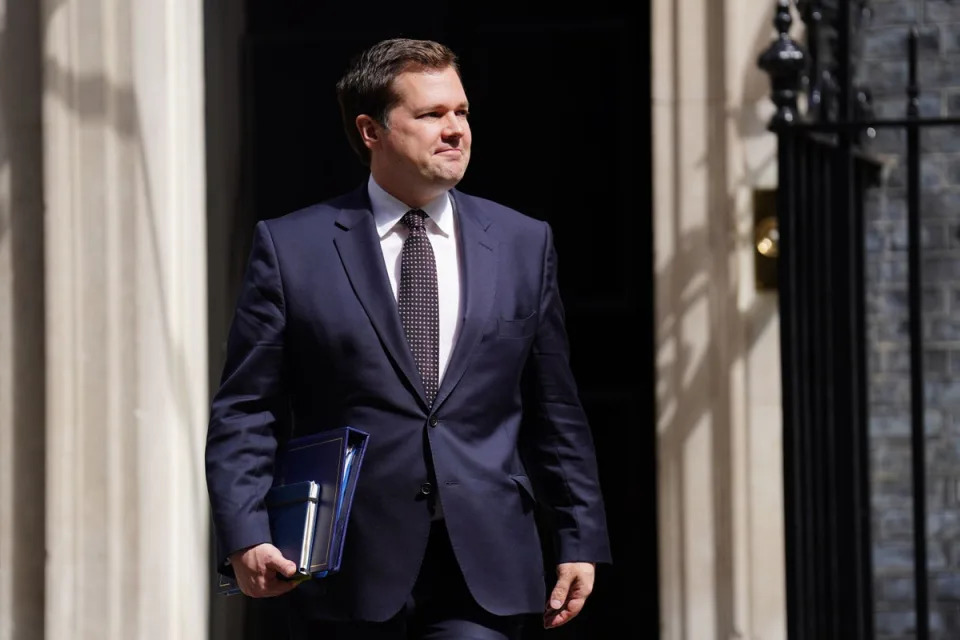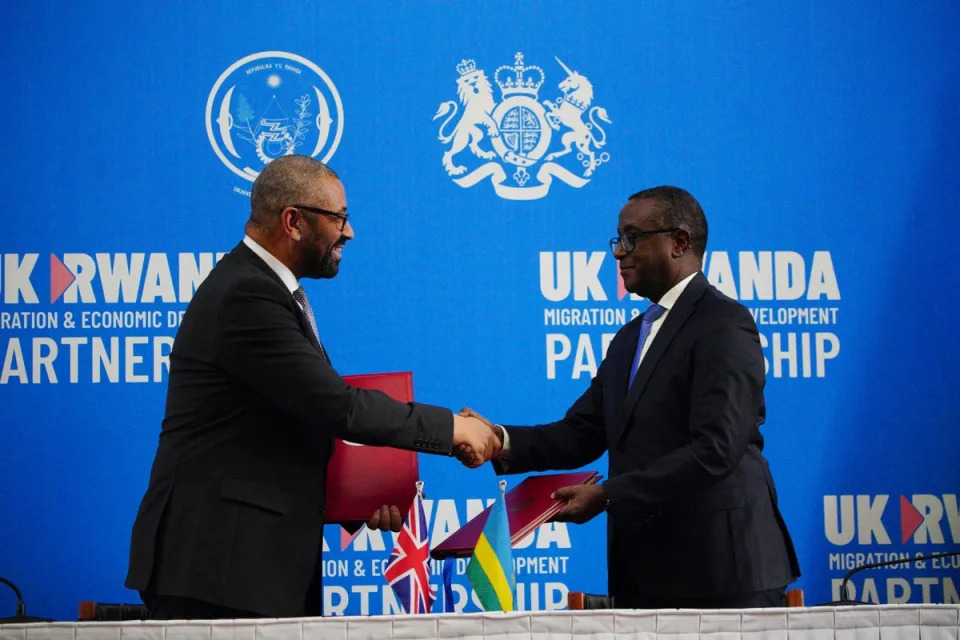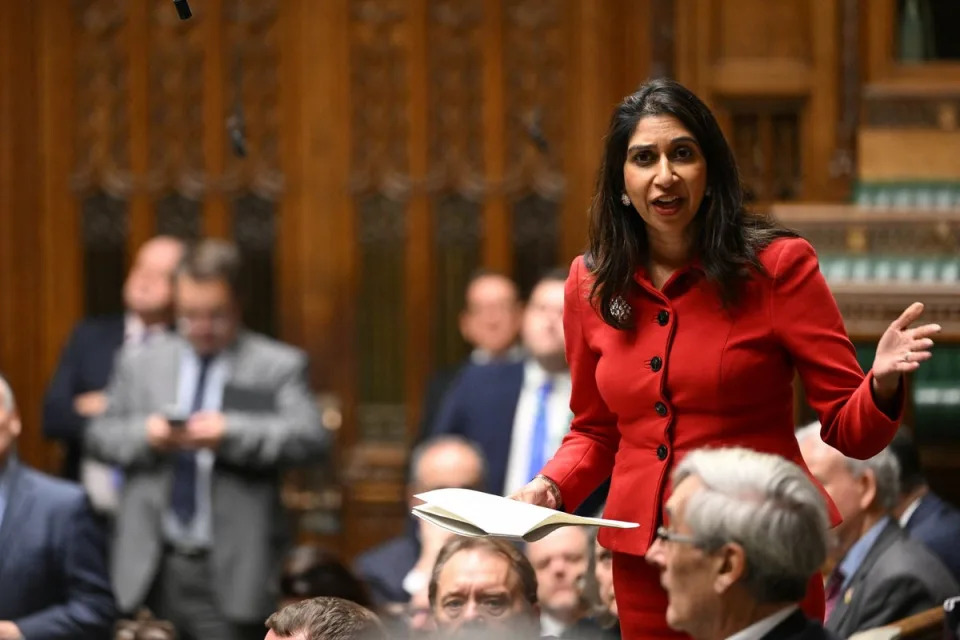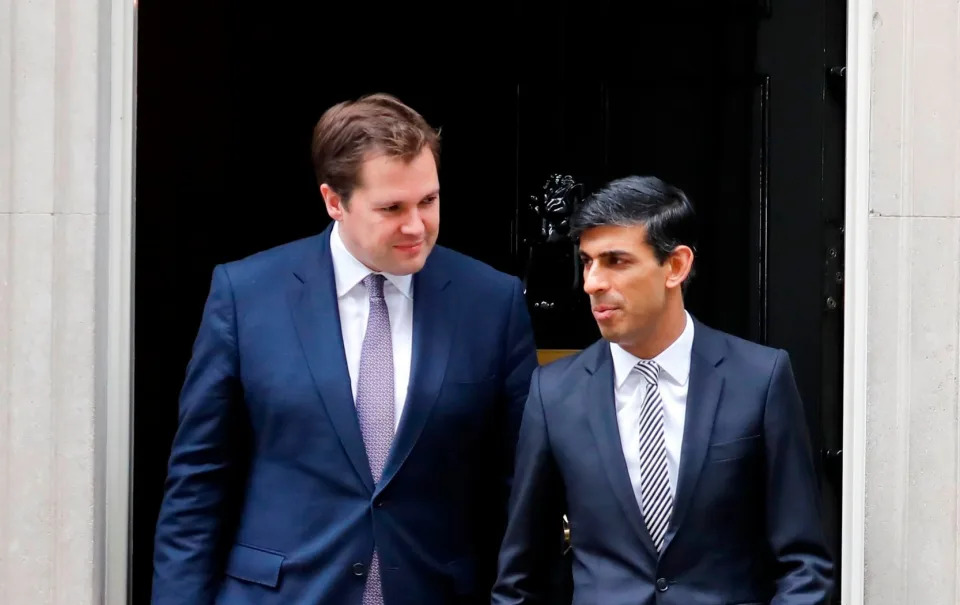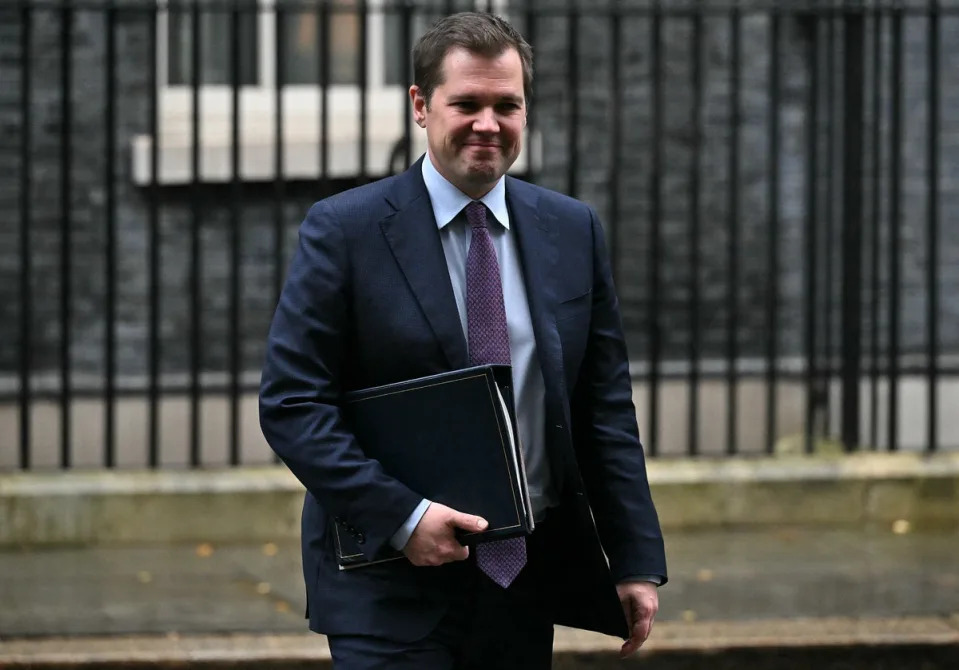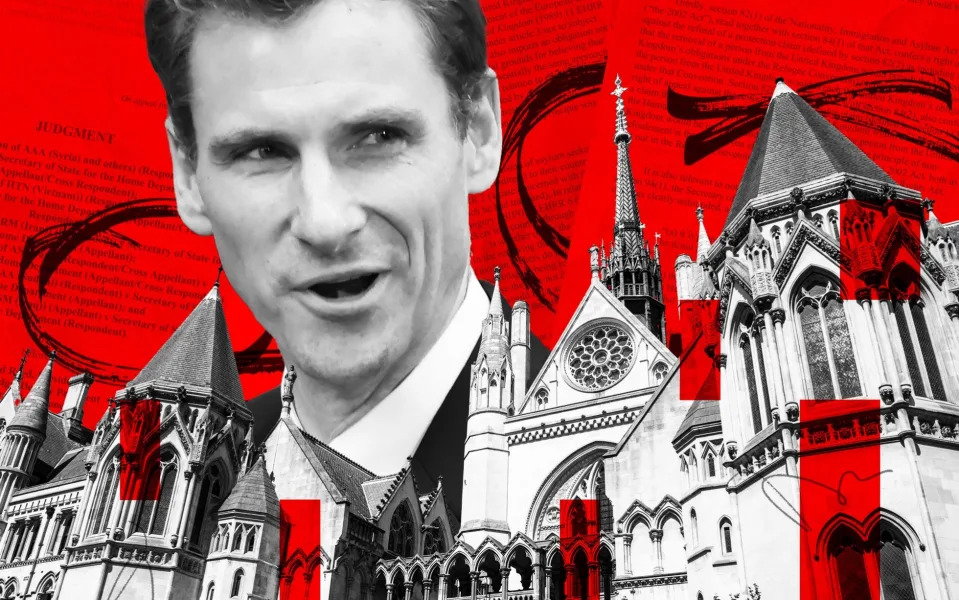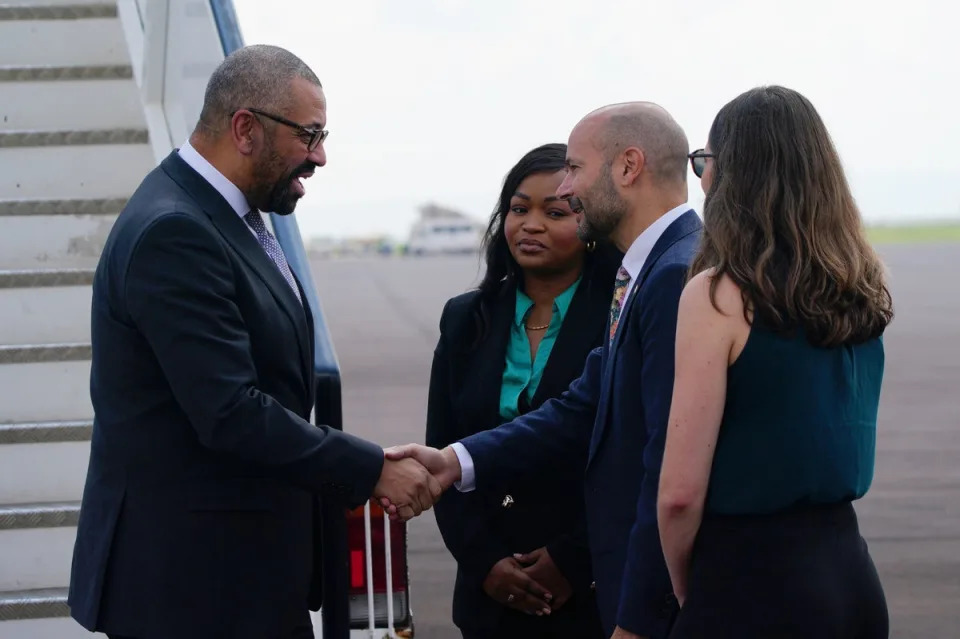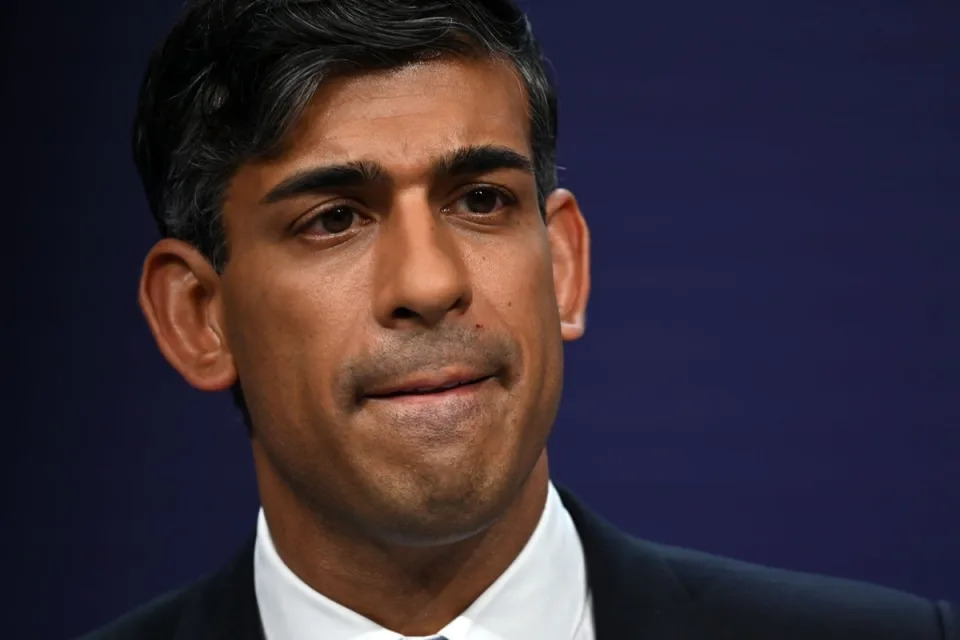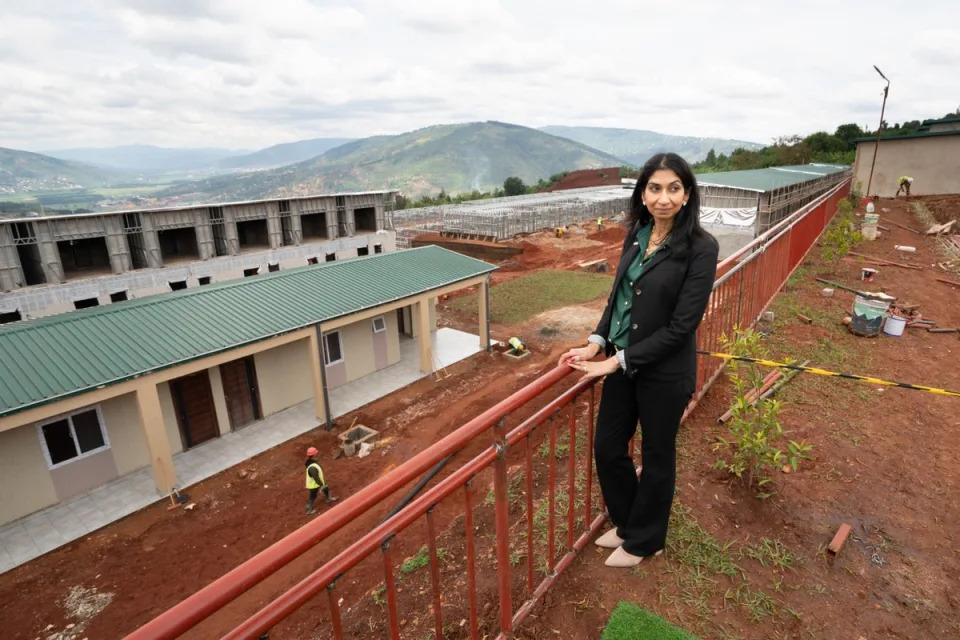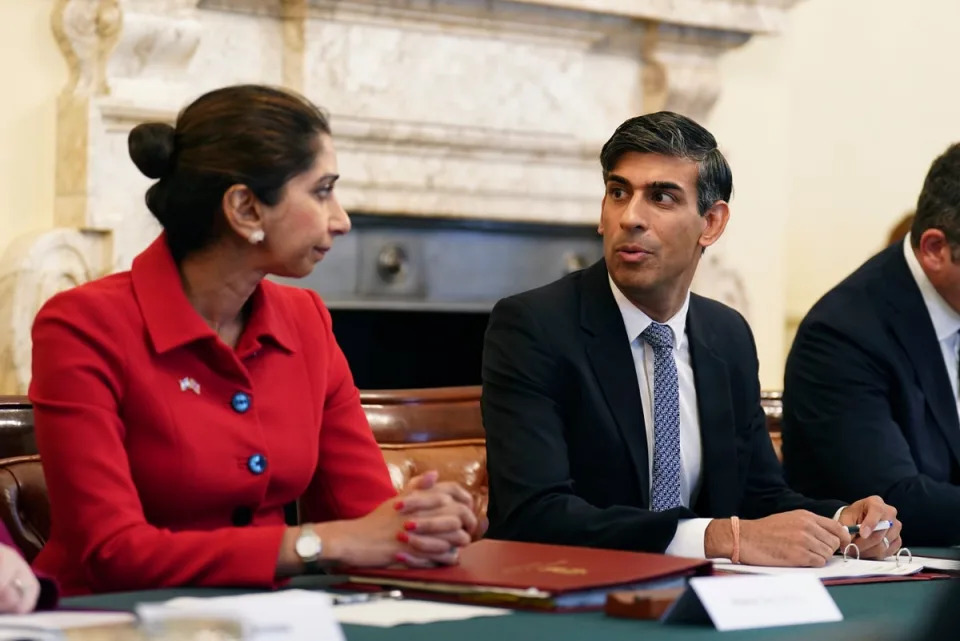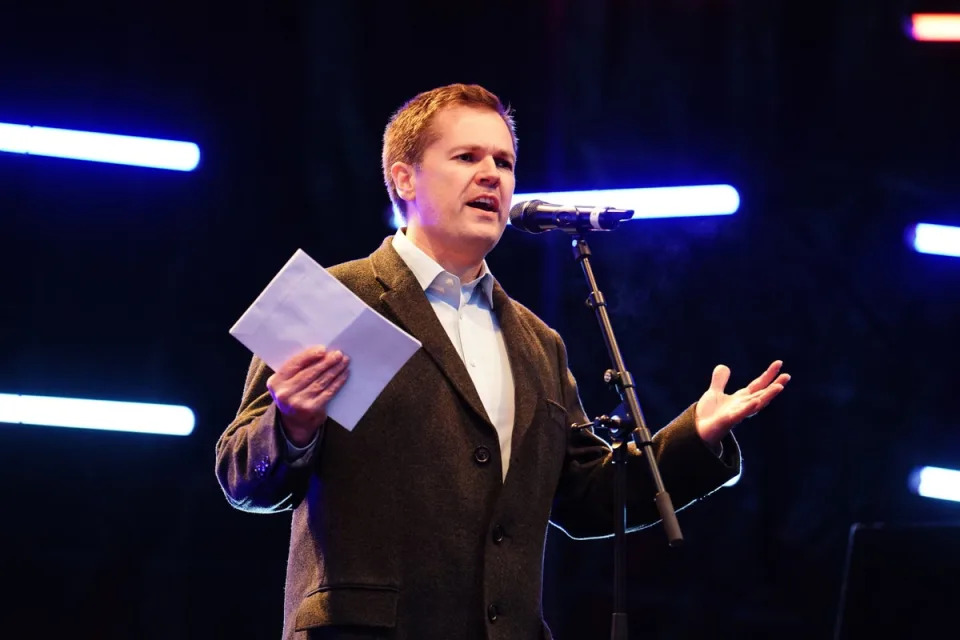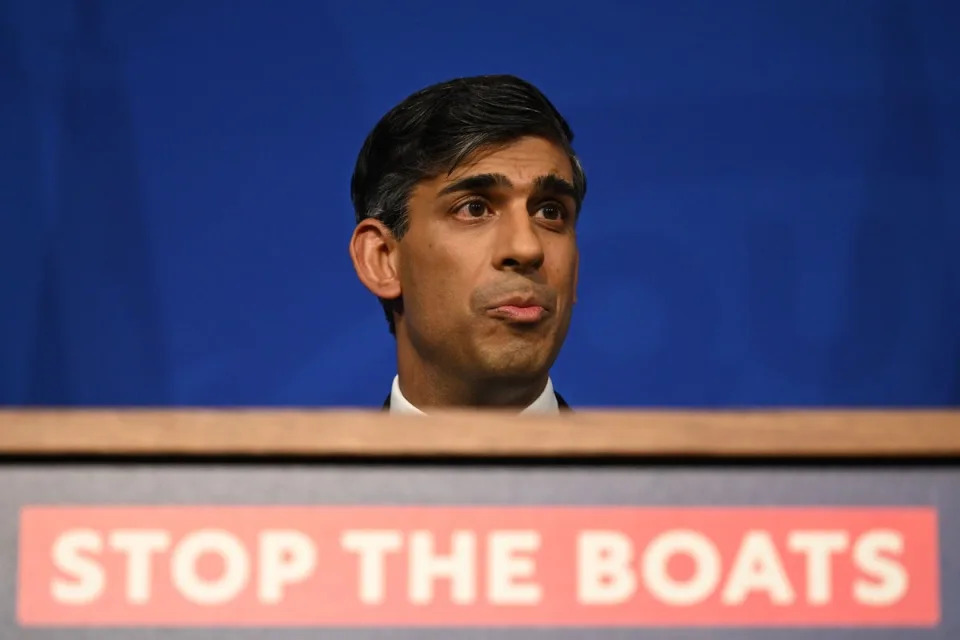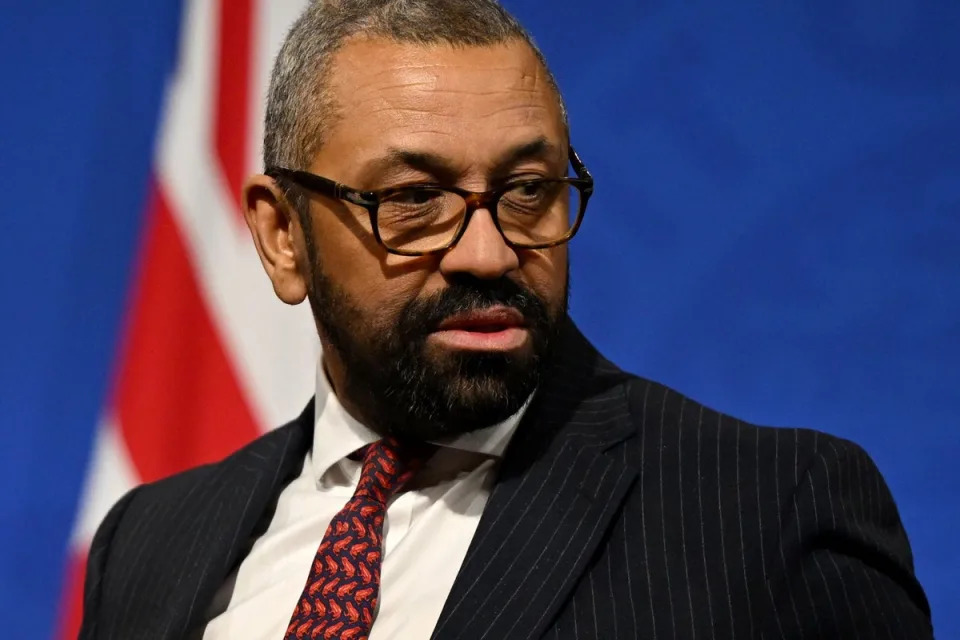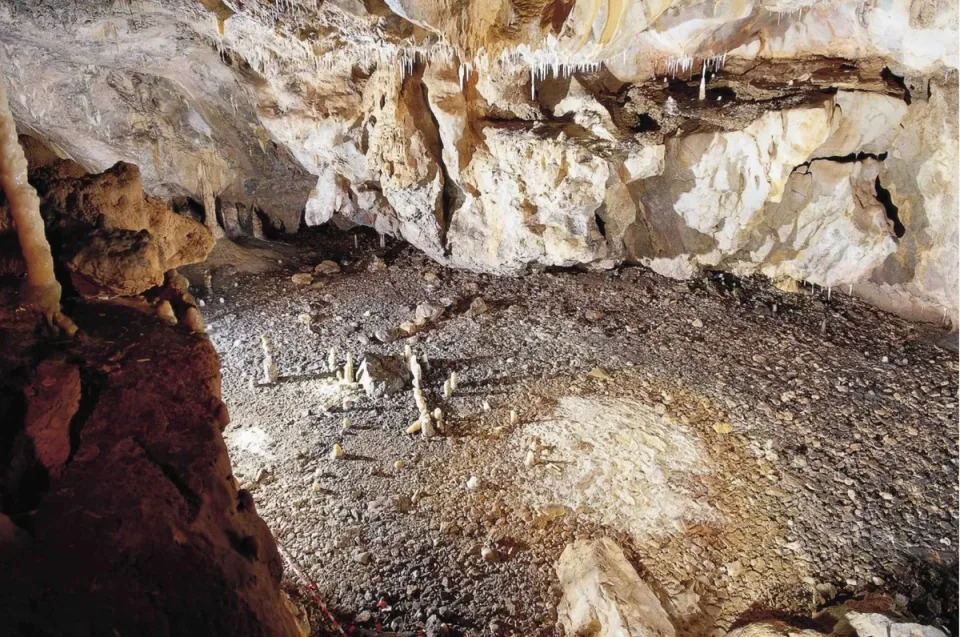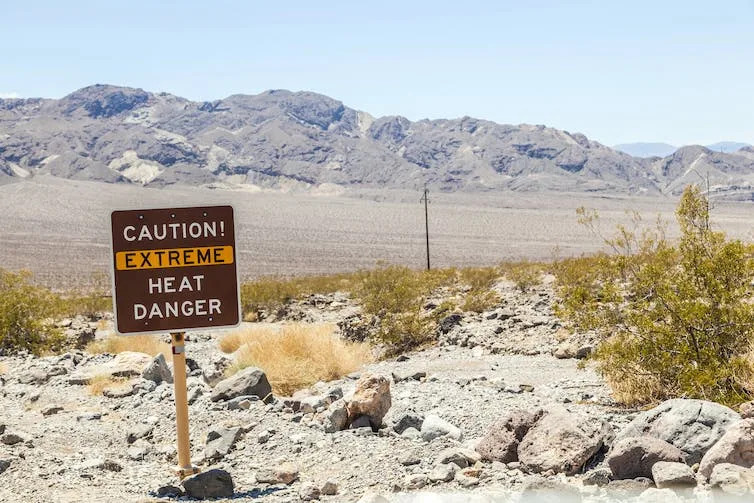UK
I’ve been through the UK visa system twice now. I'm not sure I would do it again‘Yahoo News - Insights’ is a new series in which we hear directly from people with an inside track of the big issues. Here, skilled worker Sofia Diogo Mateus explains why the new visa rules may discourage workers the country vitally needs.
Harriet Sinclair
·Trending News Reporter
Updated Wed, 6 December 2023
Home secretary James Cleverly has announced changes to the UK's visa system.
(Pool via Reuters) (POOL New / reuters)
Sofia Diogo Mateus, 35, is Yahoo News UK's head of audience and has been through the UK's visa system twice.
The government has announced changes to the UK's skilled worker visa that will see the minimum salary for applicants raised to £38,700. The changes mean 300,000 people who would have been eligible for the visa last year will not be in future, home secretary James Cleverly said.
Over the last two years I have gone through the process of applying for a skilled worker visa twice, and if I had to do it again, I'm not sure I would. On both occasions, the processes were long and complex – despite the support of the legal teams paid for by my employers, as well as their financial backing.
The immigration debate is completely divorced from reality. Maybe not the political reality, but the reality of those at the receiving end of it. Allow me to walk you through it:
In early September 2021, I filled out my initial visa application, which included not just all my personal details but every place I have visited in the past five years and why; if had ever been refused a visa for any country in the past 10 years and why; and if I had ever been deported or forced to leave country. Additionally, I had to prove that my bachelors degree was from a British university or I would have to undergo an English-language test.
I have no spouse or children, which would have required extra paperwork. My employer committed to pay £1,420 for a five-year visa, plus £624 per year for me to be able to use the NHS (also known as the healthcare surcharge). That’s a total of £4,540, since the surcharge needs to be paid in full for the five years ahead of time. In fact, it was probably pricier than that, as most companies end up paying extra to fast-track applications through the many delays that plague the Home Office.
Sofia Diogo Mateus, 35, is Yahoo News UK's head of audience and has been through the UK's visa system twice.
The government has announced changes to the UK's skilled worker visa that will see the minimum salary for applicants raised to £38,700. The changes mean 300,000 people who would have been eligible for the visa last year will not be in future, home secretary James Cleverly said.
Over the last two years I have gone through the process of applying for a skilled worker visa twice, and if I had to do it again, I'm not sure I would. On both occasions, the processes were long and complex – despite the support of the legal teams paid for by my employers, as well as their financial backing.
The immigration debate is completely divorced from reality. Maybe not the political reality, but the reality of those at the receiving end of it. Allow me to walk you through it:
In early September 2021, I filled out my initial visa application, which included not just all my personal details but every place I have visited in the past five years and why; if had ever been refused a visa for any country in the past 10 years and why; and if I had ever been deported or forced to leave country. Additionally, I had to prove that my bachelors degree was from a British university or I would have to undergo an English-language test.
I have no spouse or children, which would have required extra paperwork. My employer committed to pay £1,420 for a five-year visa, plus £624 per year for me to be able to use the NHS (also known as the healthcare surcharge). That’s a total of £4,540, since the surcharge needs to be paid in full for the five years ahead of time. In fact, it was probably pricier than that, as most companies end up paying extra to fast-track applications through the many delays that plague the Home Office.
Sofia Diogo Mateus questions whether she would go through the visa process again.
(Sofia Diogo Mateus)
Even with the fast track, it took almost two months for my visa to be approved.
Once that was done, I had to go to a visa centre, hand over my passport and wait another week for it to be handed back to me via courier. I received a 90-day entry visa, and once I had entered the UK, I had to register with the Home Office for my biometric residency permit – much like the type many members of the British public are against having.
Under my visa, I'm not allowed any public funds, and should I have any children, alone or with a partner who is not British or a permanent resident, they too will not be allowed benefits of any kind.
If I lose my job, I immediately lose the right to live in the UK. It's galling to know that if I was made redundant, I would have to pack up the life I have built here and be out of the country within 60 days.
Even with the fast track, it took almost two months for my visa to be approved.
Once that was done, I had to go to a visa centre, hand over my passport and wait another week for it to be handed back to me via courier. I received a 90-day entry visa, and once I had entered the UK, I had to register with the Home Office for my biometric residency permit – much like the type many members of the British public are against having.
Under my visa, I'm not allowed any public funds, and should I have any children, alone or with a partner who is not British or a permanent resident, they too will not be allowed benefits of any kind.
If I lose my job, I immediately lose the right to live in the UK. It's galling to know that if I was made redundant, I would have to pack up the life I have built here and be out of the country within 60 days.
Changing jobs
In September of this year, I decided to change jobs. Before I tell you just how complex the process of “transferring” my visa was, I should tell you that I know no-one who has done it. Among the friends and acquaintances I have who are in the UK on skilled worker visas, everyone is hanging on to them for dear life, as the reluctance to sponsor people is now quite common, even in big employers that were happy to do it immediately after Brexit. We assume it’s the cost but we don’t know.
The visa “transfer” application was essentially the same as the one I did two years ago, which left me wondering why on earth the Home Office needed me to repeat everything I had already declared to them.
But that’s not all: I also had to explain the reason for any absences from the country that were longer than 15 days since I moved here, and detail every single medical treatment I have received, public or private, and show that I had paid for it, despite paying an extra specific fee specifically for the right to use the NHS.
My new employer had to once again pay, this time slightly more because the application happened from within the UK. It’s unclear to me if my previous employer will receive any money back for the NHS surcharge they paid in advance.
Sofia Diogo Mateus spent months waiting for her visa to be approved.
(Sofia Diogo Mateus)
As I waited to hear about the transfer decision, I was not allowed to leave the country and was told, through independent legal advice, that I should avoid having any time during which I am not employed through sponsorship, for that would likely have an impact on my permanent residency application (which will be available to me after five years under the current rules).
More than two years ago, when I was asked if I wanted to stay in Brussels or move to London, I chose the UK before my employer even had a chance to state that would be their preference too. I also chose the UK over 17 years ago too, when I first moved here for university, albeit under much simpler rules as a European. I have tried to come back to London since I left after my degree, long before Brexit made my life that much harder.
This isn’t a matter of ideology or belief - it’s simple math. In Germany and Belgium, the countries I lived in before, which also have health and care workers shortages, moving is easy. There’s no application, fees or limits and salaries are roughly the same as in the UK, with a lower cost of living and inflation. By and large, moving here is no longer worth it for the people the country desperately needs to keep its economy running. No matter what you believe, there’s no running away from these competing realities.
If I had to go through the UK visa process again, I am pretty sure I wouldn’t – and I certainly would not allow a government to dictate whether I can be with my family or not. No job or amount of money is worth that.
As I waited to hear about the transfer decision, I was not allowed to leave the country and was told, through independent legal advice, that I should avoid having any time during which I am not employed through sponsorship, for that would likely have an impact on my permanent residency application (which will be available to me after five years under the current rules).
More than two years ago, when I was asked if I wanted to stay in Brussels or move to London, I chose the UK before my employer even had a chance to state that would be their preference too. I also chose the UK over 17 years ago too, when I first moved here for university, albeit under much simpler rules as a European. I have tried to come back to London since I left after my degree, long before Brexit made my life that much harder.
This isn’t a matter of ideology or belief - it’s simple math. In Germany and Belgium, the countries I lived in before, which also have health and care workers shortages, moving is easy. There’s no application, fees or limits and salaries are roughly the same as in the UK, with a lower cost of living and inflation. By and large, moving here is no longer worth it for the people the country desperately needs to keep its economy running. No matter what you believe, there’s no running away from these competing realities.
If I had to go through the UK visa process again, I am pretty sure I wouldn’t – and I certainly would not allow a government to dictate whether I can be with my family or not. No job or amount of money is worth that.

